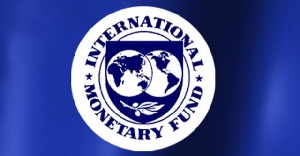The International Monetary Fund (IMF) has conditioned its next review of the US$918 million Extended Credit Facility programme, expected mid-September, on a “quick and positive” resolution of the web of debt that entangles power sector state-owned enterprises.
As government frantically seeks out options to clear the debts, the IMF fears a wrong move could pose “additional risks” to the economy.
In a statement issued on Tuesday, the IMF said it is awaiting government action on the matter before it decides whether to send its staff to assess progress so far made in implementing the programme.
An IMF team is expected in the country next month to carry-out the third review of the US$918 million Extended Credit Facility programme entered into with government in April last year.
Although the statement did not specifically mention power sector agencies, it said the financial pressures in SOEs [State-Owned-Enterprises] needed to be resolved.
The development brings further uncertainties to bear on when the IMF will release the US$115 million fourth tranche of the credit facility programme. Its Mission Lead to Ghana, Joel Toujas-Bernate, says though a number of bills have been passed by parliament to address some concerns of the Fund, there still remain a number of teething issues that require swift action.
“Discussions between staff and the authorities are currently ongoing to update macroeconomic projections, firm up the fiscal outlook for the remainder of 2016 and ascertain that financial pressures in SOEs will not pose additional risks to the central government budget. Subject to a quick and positive conclusion of these discussions, staff expects the third program review to be considered by the IMF Executive Board around mid-September,” he said in the statement.
The IMF expressed satisfaction and identified a few areas where further work and discussions were needed on completion of its second review of the Extended Credit Facility programme in May this year.
Since then the government has drafted and got parliament to pass a number of laws geared at sanitizing the financial services sector and public financial management, Some of the bills passed include the Banks and Specialized Deposit-Taking Institutions Bill, the Deposit Insurance Bill, the Public Finance Management Law and the Amended Bank of Ghana Act.
The Finance Minister, Seth Emmanuel Terkper, in July this year, also indicated that the government has agreed to restructure and use proceeds from the Energy Sector Levy to pay a GHC2.2 billion debt of the Volta River Authority (VRA) owed several banks and other suppliers in the country.
Additionally, the Finance Minister earlier this month admitted that the government owes the Electricity Company of Ghana (ECG) about GHC728 million in subsidies and non-paid bills, which it intends to pay over the next five years.
The expanding debts of these energy generation and distribution companies have raised concerns about how government wants to address the financial positions of its companies without causing budget overruns.
These concerns about the funding gap have further heightened, following the challenges government now faces in issuing over a billion dollar Eurobond to retire part of the legacy debts in the power sector.
Business News of Wednesday, 31 August 2016
Source: 3news.com













